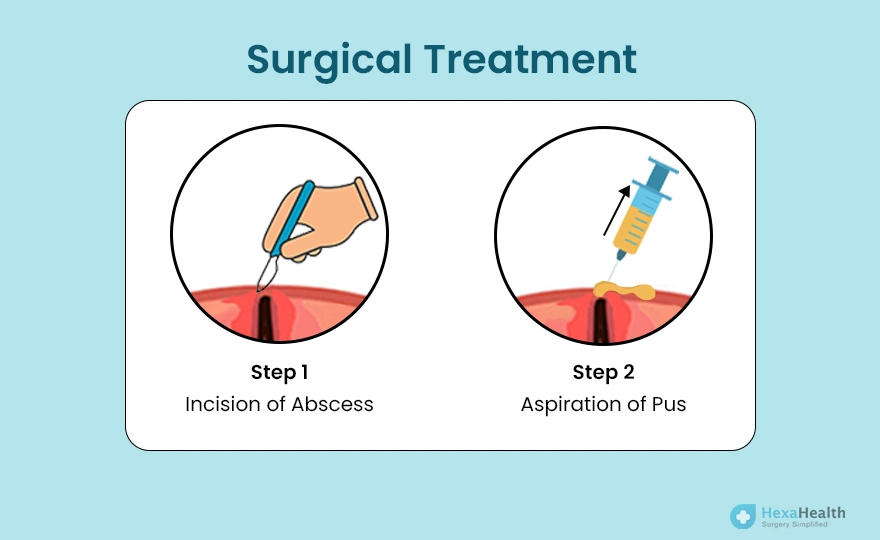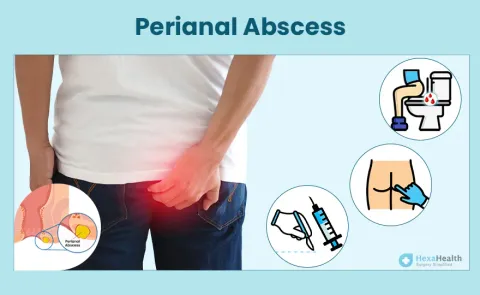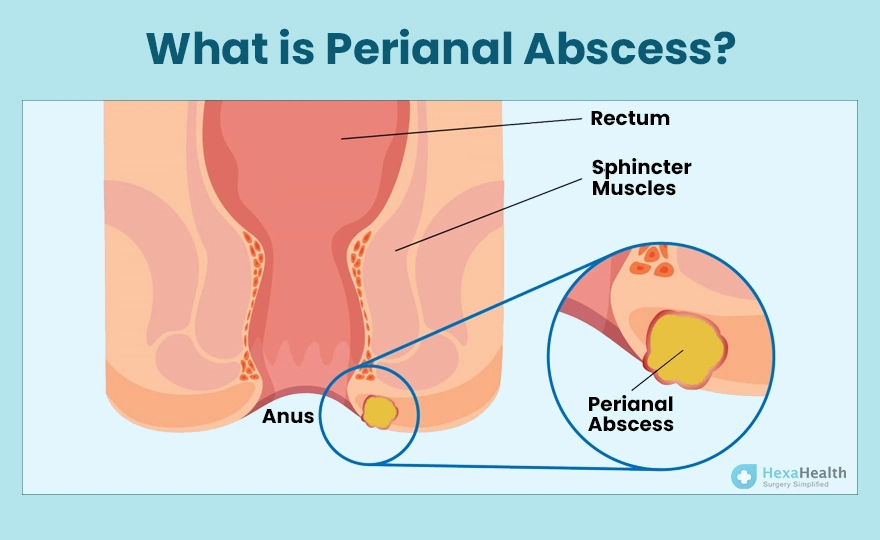Perianal abscess is a condition that does not generally go away on its own. It may require a doctor’s intervention to remove the abscess safely.
Based on the complexity of the case, the patient’s age and other relevant factors, the doctor may recommend one of the following treatment methods for perianal abscess.
Treatment of Perianal Abscess Without Surgery
Perianal Abscess Treatment at Home
A few lifestyle changes can help alleviate the discomforting symptoms of anal abscesses. Some of the changes a patient can incorporate in his/her daily routine to cope with the problem include:
- Maintain Cleanliness: Since perianal abscesses occur due to microbial infection, it is extremely important to ensure keep the area clean and dry at all times.
- Consuming a Balanced Diet: It is important to consume a well-balanced diet for good digestion and easy stool passage. Avoid spicy, salty and processed foods to avoid constipation and pain.
- Drink Plenty of Water: Drinking an adequate amount of water i.e., 6 to 8 glasses of water in a day, can help improve digestion.
- Sitz Bath: To take a sitz bath, fill a basin or bathtub with a few inches of warm water and sit in it for 15 to 20 minutes. This can keep the area clean and help reduce inflammation and pain.
- Warm Compress: Soak a clean towel in warm water and apply it to the affected area for 10 to 15 minutes several times daily. Ensure washing your hands before and after applying the compress to avoid spreading infection.

Note: Do not forget to check with your doctor as some of these procedures may cause drainage from the abscess. Also, make sure to keep the temperature under control to prevent skin burns.
Medications for Perianal Abscess
In some initial cases, perianal abscess may be treatable using medicines. Medications that a doctor may prescribe include:
- Antibiotics: Your doctor may prescribe you a couple of antibiotics to fight bacterial infections causing abscesses.
- Over-the-Counter Medicines: Some over-the-counter medicines for perianal abscesses include:
- Pain Killers: An anal abscess can be extremely painful while passing stool. The doctor may prescribe you some painkillers to cope with pain.
- Laxatives: They help in easing the excretion of stool. Stool softeners may also be prescribed which help in softening the stool to prevent constipation.

It is crucial that the patient consults with a doctor for the best suitable treatment for their perianal abscess.
Ayurvedic Treatment for Perianal Abscess
Ayurvedic treatment methods for a boil near the anus hole may help it heal. Ayurveda does not generally cause side effects, however, it is important to ask your doctor about the same. Some of the ayurvedic treatments for perianal abscesses include:
- Triphala Powder: Triphala is a blend of three fruits - Amla, Haritaki, and Bibhitaki. It is often consumed in powdered form mixed with water or as a capsule.Triphala helps in soothing pain, easing constipation and reducing inflammation as amla contains anti-inflammatory substances.
- Guggul: One of the important anti-inflammatory herbs, guggul helps in reducing inflammation.
- Neem Paste: Neem leaves have anti-bacterial properties, which help in fighting the infection in a perianal abscess. The leaves can be boiled and ground to form a paste. Applying the same to the affected region may help heal the infection.

Note: Before taking up any of the non-surgical treatments, one must consult with their doctor to know the possible side effects or complications.
Treatment of Perianal Abscess With Surgery
In majority of the cases, anal abscess rarely goes away without surgical treatment. The most commonly used method to treat a perianal abscess is through incision and drainage of the pus.
In this method, the doctor cleans the skin with an antiseptic solution. He may or may not use an anaesthetic to numb the affected area. The abscess is then incised using a scalpel (medical knife) and the pus begins to drain out.
In cases where the infection is deeper, a catheter may drain the remaining pus.
Cost of Perianal Abscess Treatment
The cost of perianal abscess treatment in India can vary depending upon multiple factors including the complexity of the condition and the age of the patient. Other factors include the type of hospital or clinic where the procedure is performed and its location.
Here is a table highlighting the cost of the treatment for perianal abscesses:
| Surgery Name |
Surgery Cost |
| Incision and Drainage |
₹ 8,000 - ₹ 20,000 |
You can find more details on incision and drainage cost in India.








































